Photo: Patrick T. Fallon/AFP via Getty Images
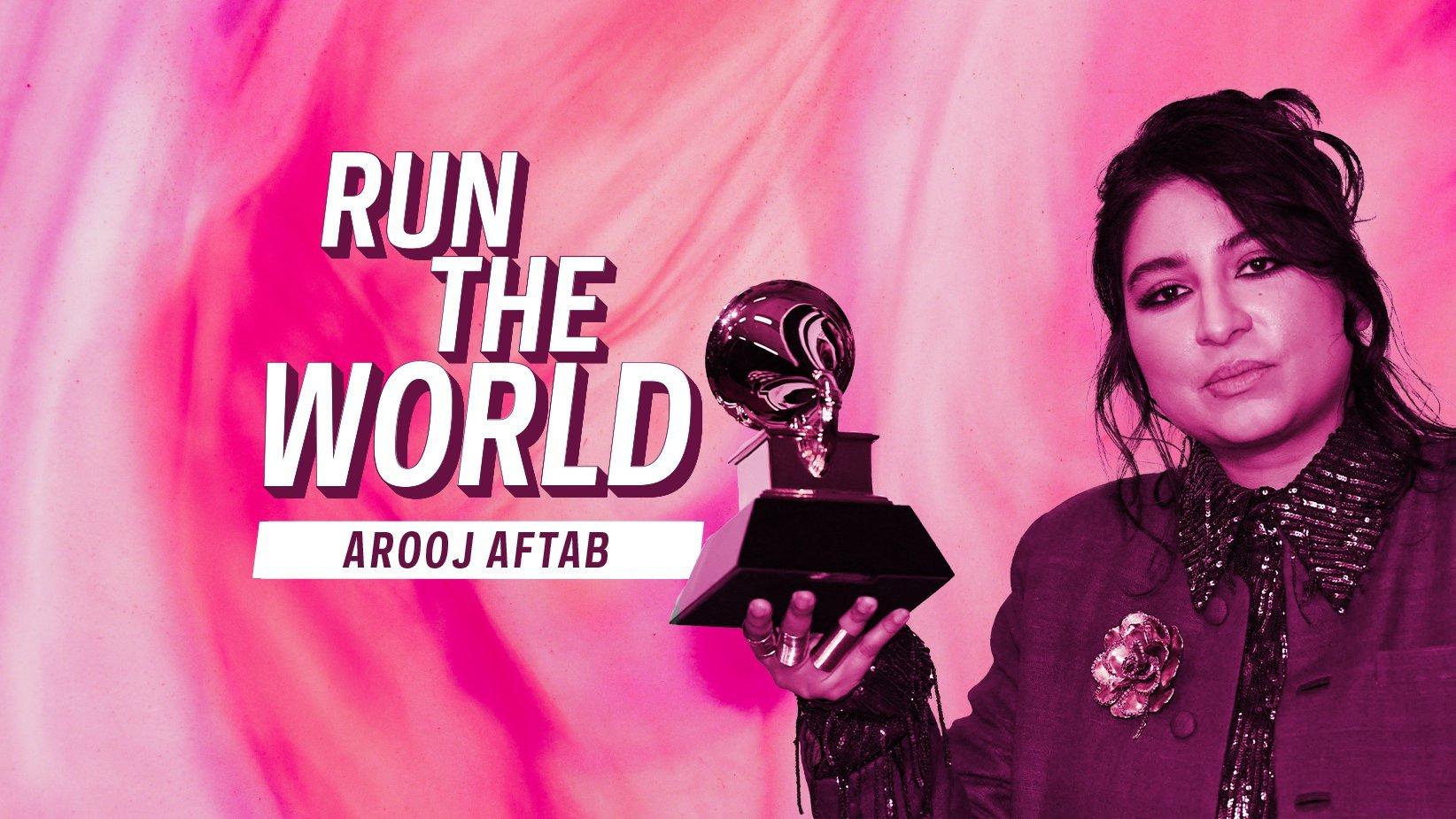
video
Run The World: How Pakistani Singer Arooj Aftab Reimagined Genre & Made GRAMMY History
Revisit Arooj Aftab's path to success through reimagining genre and delivering an innovative musical style — all of which helped her become the first Pakistani woman to ever win a GRAMMY at the 2022 GRAMMY Awards.
At the 2022 GRAMMY Awards, Arooj Aftab went from first-time GRAMMY nominee to history-making GRAMMY winner. Winning Best Global Music Performance for her single "Mohabbat," Aftab became the first Pakistani woman to ever win a GRAMMY.
But for Aftab, just as significant as that historic win was her inclusion in the all-genre Best New Artist category. "I feel like people in post-minimalist or classical or jazz circles have been a little bit otherized by the GRAMMYs, which has always kind of nodded toward the mainstream, mostly — that whole listening audience," she told GRAMMY.com at the time. "Being nominated as Best New Artist has shattered that — for me, at least — and I don't feel otherized anymore."
In this episode of Run the World, revisit Aftab's complex and visionary musical style, which blends jazz, minimalist pop and neo-Sufi leanings. Adding to her unique genre-bending sound, Aftab also takes inspiration from the vocal stylings of everyone from Mariah Carey to Billie Holiday to Indian performer and flautist Hariprasad Chaurasia.
After growing up in Saudi Arabia and Pakistan, Aftab moved to the U.S. at age 19 to attend Berklee College of Music in Boston. The now Brooklyn-based singer/songwriter first gained critical acclaim for Bird Under Water and Siren Islands in the mid-2010s, but it was 2021's Vulture Prince — a delicate, seven-track project dedicated to the memory of her late brother — that propelled Aftab to stardom.
"I wanted Vulture Prince to transcend boundaries," she explained to the L.A. Times last year. "I wanted to combine all of my experiences and have them translated in the music."
Charting a quiet, personal journey from grief to healing, Vulture Prince touches on something universal, and feels familiar to any audience — regardless of whether or not those listeners share cultural or musical history with its creator.
Watch the video above for more highlights of Aftab's career to date, and keep checking GRAMMY.com for more episodes of Run The World.
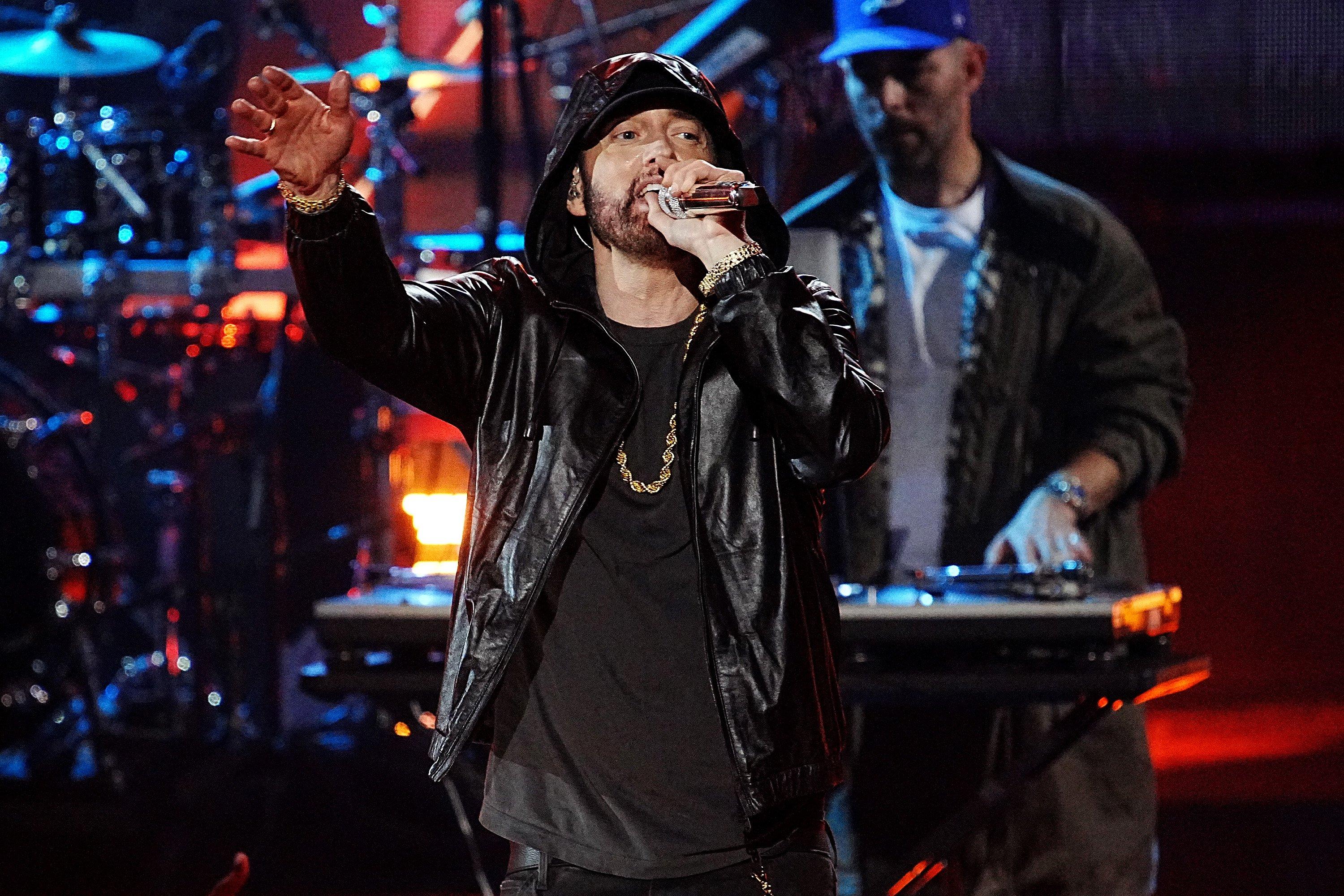
Photo: Jeff Kravitz/FilmMagic via Getty Images
list
New Music Friday: Listen To New Albums & Songs From Eminem, Maya Hawke, ATEEZ & More
Dive into the weekend with music that’ll make you dance, brood and think — by Jessie Reyez, Ayra Starr, Adam Lambert, and many more.
After the cookouts and kickbacks of Memorial Day weekend, getting through the workweek is never easy. But you made it through — and now it's time for another weekend of however you decompress. As always, killer jams and musical food for thought have arrived down the pipeline.
As you freshen up your late-spring playlist, don't miss these offerings by artists across generations, moods, genres, and vibes — from K-pop to classic country and beyond.
Eminem — "Houdini"
It looks like Dua Lipa isn't the only artist to name-drop Erik Weisz this year. In a recent Instagram video with magician David Blaine, Eminem hinted at a major career move, quipping, "For my last trick, I'm going to make my career disappear," as Blaine casually noshed on a broken wineglass.
With Em's next album titled The Death of Slim Shady, fans were left in a frenzy — was he putting the mic down for good? If "Houdini" is in fact part of Eminem's final act, it seems he'll be paying homage to his career along the way: the song includes snippets of Em classics "Without Me," "The Real Slim Shady," "Just Lose It" and "My Name Is."
The superhero comic-themed video also calls back to some of the rapper's iconic moments, including the "Without Me" visual and his 2000 MTV Video Music Awards performance. It also features cameos from the likes of Dr. Dre, Snoop Dogg, 50 Cent, and Pete Davidson — making for a star-studded thrill ride of a beginning to what may be his end.
Read More: Is Eminem's “Stan” Based On A True Story? 10 Facts You Didn't Know About The GRAMMY-Winning Rapper
Maya Hawke — 'Chaos Angel'
"What the Chaos Angel is to me," Maya Hawke explained in a recent Instagram video, "is an angel that was raised in heaven to believe they're the angel of love, then sent down to do loving duties."
Chaos Angel, the third album by Maya Hawke, out via Mom+Pop Records, is an alt-rock treasure with a psychologically penetrating bent. Smoldering tracks like "Dark" and "Missing Out" plumb themes of betrayal and bedlam masterfully.
Jessie Reyez & Big Sean — "Shut Up"
Before May 31, Jessie Reyez's 2024 releases have come in the form of airy contributions for Bob Marley: One Love and Rebel Moon. And for the first release of her own, she's bringing the heat.
Teaming up with fellow rapper Big Sean for "Shut Up," Reyez delivers some fiery lines on the thumping track: "They b—es plastic, that b— is a catfish, oh-so dramatic/ And I'm sittin' pretty with my little-ass t—es winnin' pageants." Big Sean throws down, too: "B—, better read the room like you telepromptin'/ And watch how you speak to a n—a 'cause I'm not them."
Foster the People — "Lost In Space"
Indie dance-pop favorites Foster The People — yes, of the once-inescapable "Pumped Up Kicks" fame — are back with their first new music since 2017's Sacred Hearts Club. The teaser for their future-forward, disco-powered new song, "Lost in Space," brings a psychedelic riot of colors to your eyeballs.
The song is equally as trippy. Over a swirling, disco-tinged techno beat, the group bring their signature echoing vocals to the funky track, which feels like the soundtrack to an '80s adventure flick.
"Lost in Space" is the first taste of Foster The People's forthcoming fourth studio album, Paradise State of Mind, which will arrive Aug. 16. If the lead single is any indication — along with frontman Mark Foster's tease that the album started "as a case study of the late Seventies crossover between disco, funk, gospel, jazz, and all those sounds" — fans are in for quite the psychedelic ride.
Arooj Aftab — 'Night Reign'
Arooj Aftab landed on the scene with the exquisitely blue Vulture Prince, which bridged modern jazz and folk idioms with what she calls "heritage material" from Pakistan and South Asia. The album's pandemic-era success threatened to box her in, though; Aftab is a funny, well-rounded cat who's crazy about pop music, too. Crucially, the guest-stuffed Night Reign shows many more sides of this GRAMMY-winning artist — her sound is still instantly recognizable, but has a more iridescent tint — a well-roundedness. By the strength of songs like "Raat Ki Rani" and "Whiskey," and the patina of guests like Moor Mother and Vijay Iyer, this Reign is for the long haul.
Learn More: Arooj Aftab, Vijay Iyer & Shahzad Ismaily On New Album Love In Exile, Improvisation Versus Co-Construction And The Primacy Of The Pulse
Willie Nelson — 'The Border'
By some counts, Willie Nelson has released more than 150 albums — try and let that soak in. The Red Headed Stranger tends to crank out a Buddy Cannon-produced album or two per year in his autumn years, each with a slight conceptual tilt: bluegrass, family matters, tributes to Harlan Howard or the Great American Songbook. Earthy, muted The Border is another helping of the good stuff — this time homing in on songwriters like Rodney Crowell ("The Border"), Shawn Camp ("Made in Texas") and Mike Reid ("Nobody Knows Me Like You.") Elsewhere, Nelson-Cannon originals like "What If I'm Out of My Mind" and "How Much Does It Cost" fold it all into the 12-time GRAMMY winner's manifold musical universe.
ATEEZ — 'GOLDEN HOUR : Part.1'
South Korean boy band ATEEZ last released new material with late 2023's The World EP.Fin: Will. Now, they're bringing the K-pop fire once again with their 10th mini-album, GOLDEN HOUR Part.1.
Released in a rainbow of physical editions, the release was teased by a short clip for "WORK," where ATEEZ pans for gold like old prospectors in an off-kilter desert scene, then proceeds to throw the mother of all parties. As for the rest of GOLDEN HOUR, they bring flavors of reggaeton ("Blind), wavy R&B ("Empty Box") and reggae ("Shaboom") — further displaying their versatility as a group, and setting an exciting stage for Part.2.
Learn More: Inside The GRAMMY Museum's ATEEZ & Xikers Pop-Up: 5 Things We Learned
Ayra Starr — 'The Year I Turned 21'
Beninese-Nigerian singer and GRAMMY nominee for Best African Music Performance Ayra Starr pays homage to the big two-one with her second album, The Year I Turned 21, which she's been teasing all month. We've seen the crimson, windswept cover art; we've soaked up the 14 track titles, which reveal collaborations with the likes of ASAKE, Anitta, Coco Jones, and Giveon. Now, after small tastes in singles "Commas,""Rhythm & Blues" and "Santa" (with Rvssian and Rauw Alejandro), we can behold what the "Rush" star has called "excellent, sonically amazing" and "unique, because I've been evolving sonically."
Watch: Ayra Starr’s Most Essential “Item” On The Road Is Her Brother | Herbal Tea & White Sofas
Adam Lambert — "LUBE" & "WET DREAM"
The "American Idol" and Queen + Adam Lambert star is turning heads — for very good reason. He's going to release AFTERS, a new EP of house music and an unflinching exploration of queerness and sex-positivity. "I throw many house parties and my aim was to create a soundtrack inspired by wild nights, giving a voice to our communities' hedonistic desires and exploits," Lambert explained in a press release.
The first two singles, "LUBE" and "WET DREAM," achieve exactly that. From the pulsing beat of "LUBE" (along with the "Move your body like I do" demand of the chorus) to the racing melody of "WET DREAM," it's clear AFTERS will bring listeners straight to a sweaty dance floor — right where Lambert wants them.
Wallows Talk New Album Model, "Entering Uncharted Territory" With World Tour & That Unexpected Sabrina Carpenter Cover
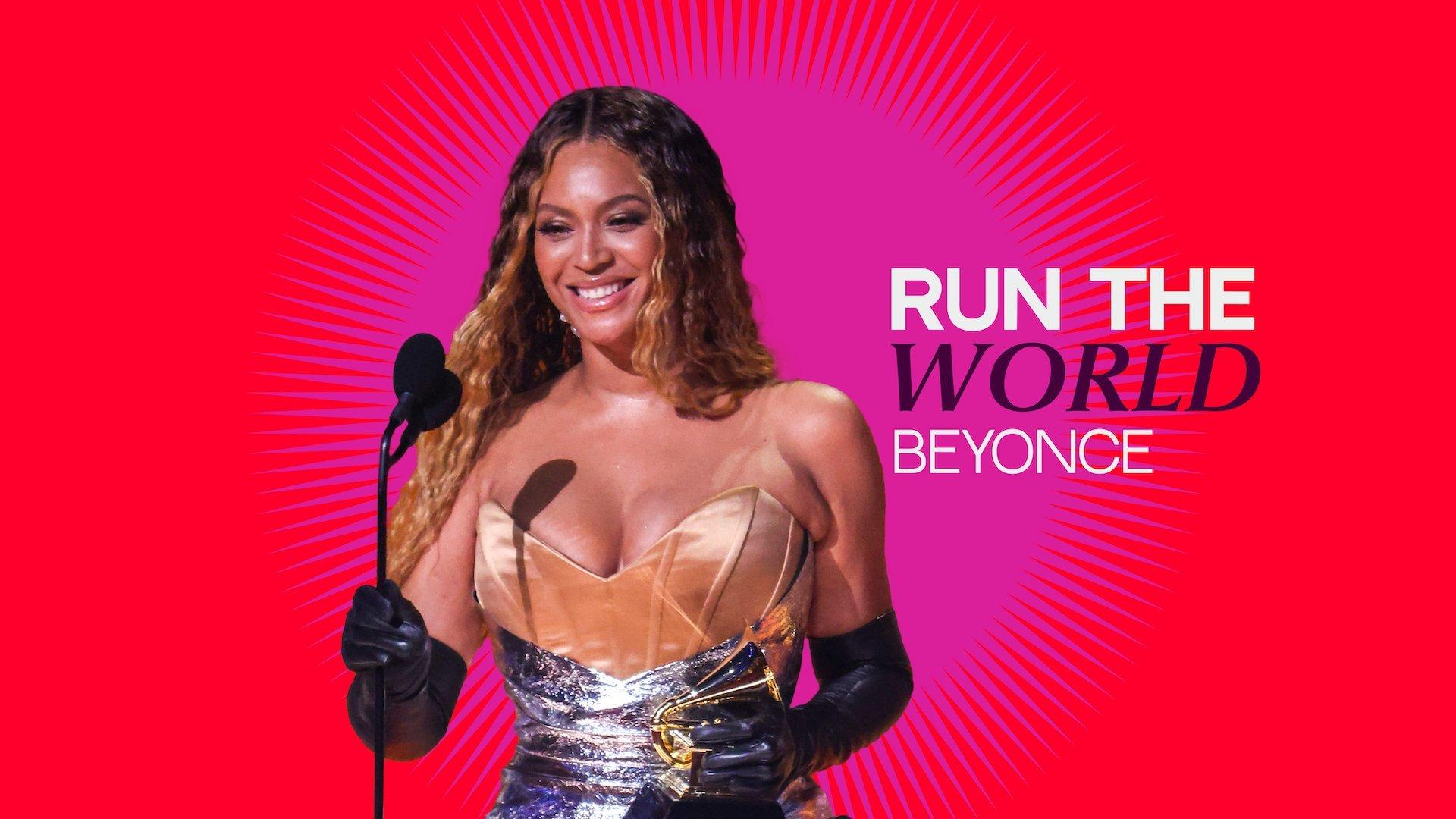
Photo: Frazer Harrison/Getty Images
video
Run The World: Why Beyoncé Is One Of The Most Influential Women In Music History
Relive a few of the moments that made Beyoncé the global icon she is today, from her debut with Destiny's Child in 1997 to becoming the most awarded musician in GRAMMY history in 2023.
Since her debut with Destiny's Child in 1997, Beyoncé has become one of the most decorated, record-breaking artists of all time.
In 2023, Queen Bey became the artist with the most GRAMMYs in history with 32 wins, after her seventh album, RENAISSANCE, won Best Dance/Electronic Music Album. That same LP also helped Beyoncé become the first female musician to have their first seven studio albums debut at No. 1 in the United States.
Earlier this year, she became the first Black woman to top Billboard's Hot Country Songs chart with "TEXAS HOLD 'EM," the lead single from her forthcoming album, COWBOY CARTER.
Beyond her chart achievements, Beyoncé has dedicated much of her work to uplifting women and exploring the Black experience, from Destiny's Child's "Independent Women, Part 1" to 2011's "Run the World (Girls)" and her 2016 album, Lemonade.
To add to her extensive resume, Beyoncé is also an active philanthropist and businesswoman. Through her BeyGOOD charity, she has championed countless causes, including education for young girls. Earlier this year, Beyoncé launched her hair care brand, Cécred, alongside an annual student scholarship and salon grant.
Among the many ways Bey has uplifted women around the world, her message to 2020 graduates perfectly summed up her influence: "Make those power moves, be excellent."
Press play on the video above to learn more about Beyoncé's colossal career. Check back to GRAMMY.com for more new episodes of Run the World, as well as for more news on Beyoncé's highly anticipated COWBOY CARTER.
Enter The World Of Beyoncé
Beyond Country: All The Genres Beyoncé Explores On 'Cowboy Carter'
Beyoncé Is The Genre-Bending Queen On 'Cowboy Carter': 5 Takeaways From Her New Album
Beyoncé's New Album 'Cowboy Carter' Is Here: Check Out The Featured Artists, Cover Songs, And Tracklist
Everything We Know About Beyoncé's New Album, 'Cowboy Carter': Two New Singles, Tracklist, A Shift To Country & More
How Beyoncé Is Honoring Black Music History With 'Cowboy Carter,' "Texas Hold Em," 'Renaissance' & More
Songbook: The Complete Guide To The Albums, Visuals & Performances That Made Beyoncé A Cultural Force
A Timeline Of Beyoncé's GRAMMY Moments, From Her First Win With Destiny's Child to Making History With 'Renaissance'
How Many GRAMMYs Has Beyoncé Won? 10 Questions About The 'Renaissance' Singer Answered

Watch Beyoncé Make GRAMMY History With Her 32nd Win In 2023 | GRAMMY Rewind
6 Takeaways From 'Renaissance: A Film By Beyoncé'
Beyoncé's 'Dangerously In Love' Turns 20: How The Solo Debut Foreshadowed The Singer's Icon Status
5 Takeaways From Beyoncé's New Album 'Renaissance'

How Beyoncé Has Empowered The Black Community Across Her Music And Art | Black Sounds Beautiful

The Creative Rebirth Of Beyoncé On '4' | For The Record
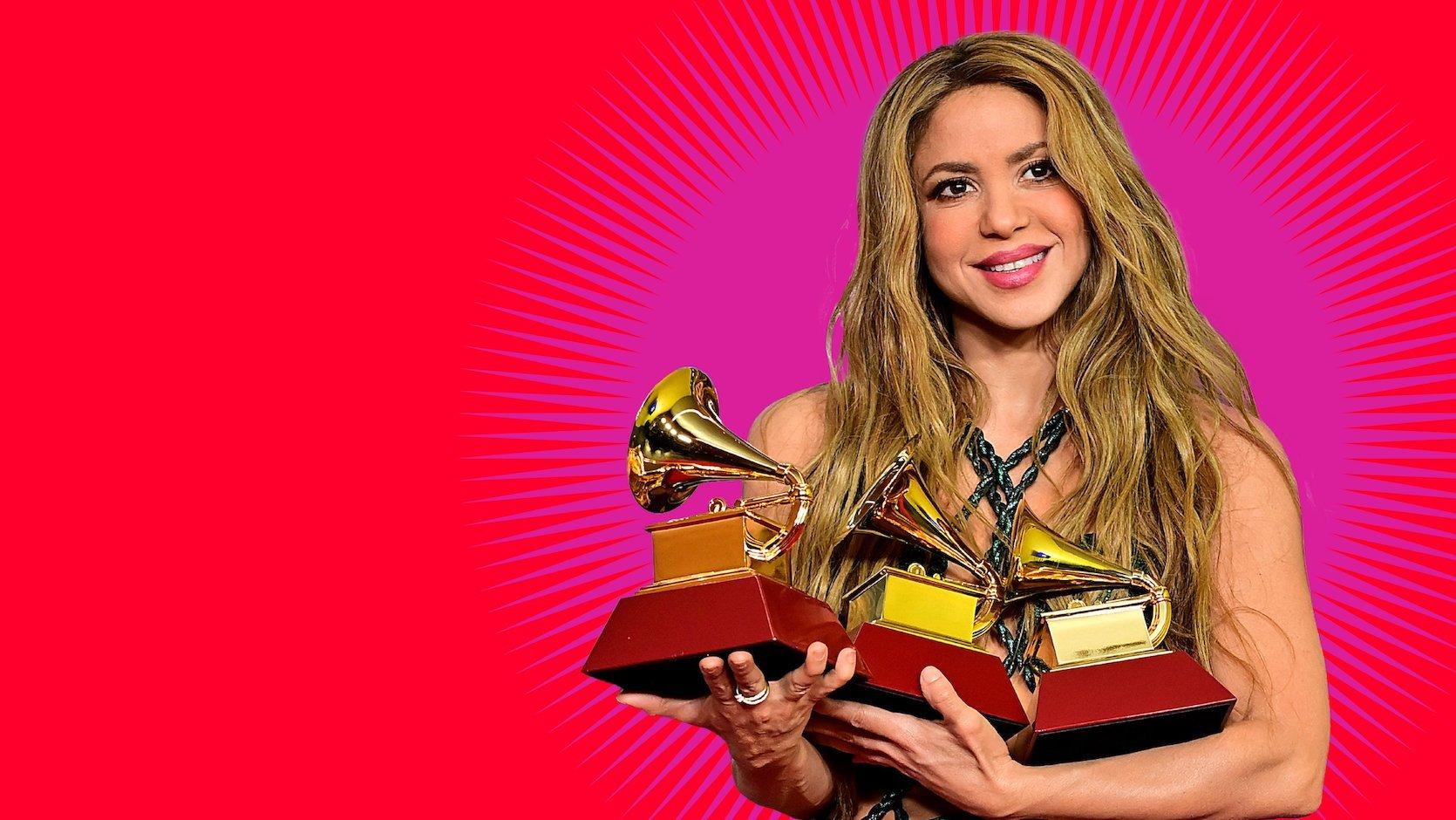
Photo: Niccolo Guasti/Getty Images
video
Run The World: How Shakira Became One Of The Most Influential Female Artists Of The 21st Century
In celebration of Women's History Month — and Shakira's new album, 'Las Mujeres Ya No Lloran' — take a journey through the Colombian superstar's monumental career, from making global smashes to empowering women worldwide.
Over the course of nearly four decades, Shakira — born Shakira Isabel Mebarak in Barranquilla, Colombia — has become the best-selling Latin female artist of all-time, and in turn one of the most influential female artists of her time.
In honor of Women's History Month, revisit a few of the massive moments in her career that paved the way for the international market of other Latin artists.
She famously invited Latin flow to the Western music industry with her global breakthrough album, 2001's Laundry Service. Five years later, she broke the record for the most-played pop song in a week with "Hips Don't Lie."
Since the beginning, Shakira has used her powerful performances to uplift other women. Her lyrics often emphasize themes of self-reliance, independence, and female strength, most notably in her 2009 hit, "She Wolf."
More than three decades into her career, Shakira is still empowering women with more history-making feats. In 2020, she co-headlined the Super Bowl LIV halftime show alongside Jennifer Lopez, celebrating Latin culture in front of more than 100 million viewers; it's now the most-watched halftime show on YouTube, with more than 308 million views as of press time.
Now, at 47, Shakira continues to use her voice to encourage women to shape their own path, as a mother of two balancing her colossal career. Her forthcoming twelfth studio album — Las Mujeres Ya No Lloran, which translates to "Women No Longer Cry" — is a testament to that.
In celebration of Las Mujeres Ya No Lloran's March 22 arrival and Women's History Month, press play on the video above to learn more about Shakira's achievements. Check back to GRAMMY.com for more new episodes of Run The World.
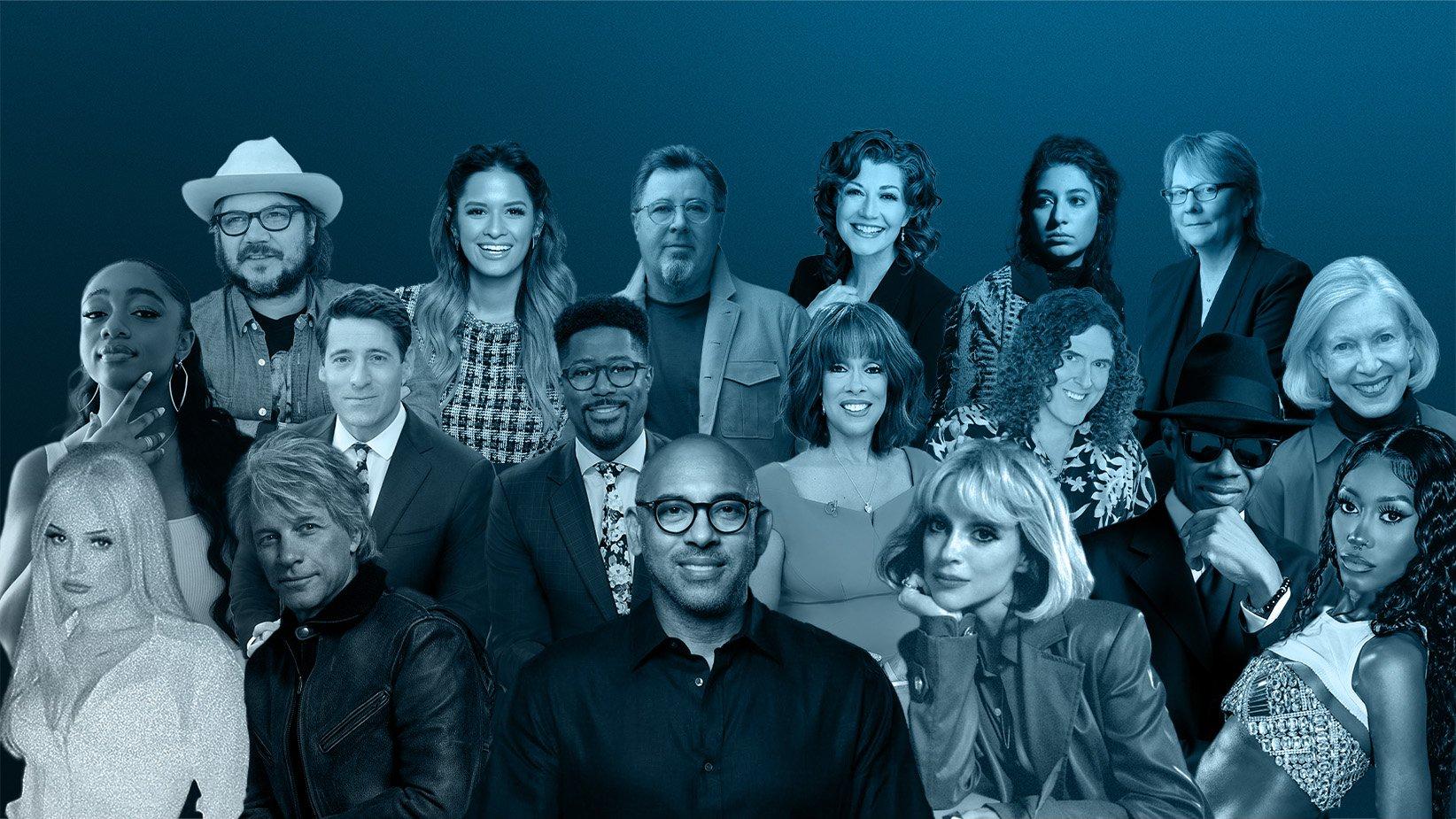
news
How To Watch The 2024 GRAMMY Nominations: St. Vincent, Jeff Tweedy, Muni Long, Kim Petras, Jon Bon Jovi, "Weird Al" Yankovic & More To Announce The Nominees; Streaming Live Friday, Nov. 10
The nominations for the 2024 GRAMMYs will be announced on Friday, Nov 10, starting at 7:45 a.m. PT / 10:45 a.m. ET. Watch it live on live.GRAMMY.com and YouTube.
It's that time again: The 2024 GRAMMYs is just a few months out — airing live Sunday, Feb. 4, from Crypto.com Arena in Los Angeles. Which means nominations for the 2024 GRAMMYs are just around the corner. On Friday, Nov 10, starting at 7:45 a.m. PT / 10:45 a.m. ET, nominations for the 2024 GRAMMYs will be announced via a livestream event airing live on live.GRAMMY.com. The nominations will also stream live on the Recording Academy's YouTube channel.
The 2024 GRAMMYs nominations livestream event will feature a diverse cast of some of the leading voices in music today, including St. Vincent, Jeff Tweedy, Muni Long, Kim Petras, 2024 MusiCares Person Of The Year Jon Bon Jovi, and many others, who will be announcing the 2024 GRAMMY nominees across all 94 categories. Plus, the livestream event will also feature an exclusive GRAMMY Nominations Pre-Show and Wrap-Up Show, which will both feature exclusive videos and conversations about the biggest stories and trends to come out of the 2024 GRAMMYs nominations.
City National Bank is the Official Bank of the GRAMMYs and proud sponsor of the 66th Annual GRAMMY Awards Nominations.
See below for a full guide to the 2024 GRAMMYs nominations livestream event happening next week:
How Can I Watch The 2024 GRAMMY Nominations?
The nominations livestream event will stream live on live.GRAMMY.com and the Recording Academy's YouTube channel.
When Are The 2024 GRAMMY Nominations Announced?
The 2024 GRAMMYs nominations will be announced Friday, Nov 10. The day kicks off with an exclusive GRAMMY Nominations Pre-Show, starting at 7:45 a.m. PT / 10:45 a.m. ET. Hosted by Emmy-winning TV host and “GMA3” contributor Rocsi Diaz, the GRAMMY Nominations Pre-Show will give music fans an inside look at the various initiatives and campaigns that the Recording Academy, the organization behind the annual GRAMMY Awards, supports on a year-long basis on its mission to recognize excellence in the recording arts and sciences and cultivate the well-being of the music community.
Afterward, starting at 8 a.m. PT / 11 a.m. ET, the GRAMMY nominations livestream event begins. The livestream event will begin with a special presentation announcing the nominees in the General Field categories, aka the Big Six, as well as select categories. On live.GRAMMY.com, exclusive videos announcing the nominees across multiple categories will stream as a multi-screen livestream event that users can control, providing a dynamic, expansive online experience for music fans of all genres. The nomination videos will also stream live on YouTube. The full list of 2024 GRAMMYs nominees will then be published on live.GRAMMY.com and GRAMMY.com immediately following the livestream event.
After the nominations are announced, stay tuned for an exclusive GRAMMY Nominations Wrap-Up Show. Co-hosted by "Entertainment Tonight" correspondents Cassie DiLaura and Denny Directo, the Wrap-Up Show will break down all the notable news and top stories from the 2024 GRAMMYs nominations. The GRAMMY Nominations Wrap-Up Show will stream live on live.GRAMMY.com as well as the Recording Academy's YouTube channel, X profile, Twitch channel, TikTok page, Instagram profile, and Facebook page.
Watch the 2024 GRAMMYs nominations livestream event and make sure to use #GRAMMYs to join the conversation on social media as it unfolds live on Friday, Nov. 10.
The schedule for the 2024 GRAMMYs nominations livestream event is as follows:
GRAMMY Nominations Pre-Show
7:45 a.m. PT / 10:45 a.m. ET
Nominations Livestream Event
8 a.m. PT / 11 a.m. ET
Nominations Livestream Event Ends & Full Nominations Revealed
8:25 a.m. PT / 11:25 a.m. ET
GRAMMY Nominations Wrap-Up Show
8:25 a.m. PT / 11:25 a.m. ET
^All times are approximate and subject to change.
Who's Announcing The 2024 GRAMMY Nominations?
Recording Academy CEO Harvey Mason jr. will be joined by GRAMMY winners Arooj Aftab, Vince Gill, Amy Grant, Jimmy Jam, Jon Bon Jovi, Samara Joy, Muni Long, Cheryl Pawelski, Kim Petras, Judith Sherman, St. Vincent, Jeff Tweedy, and "Weird Al" Yankovic, along with "CBS Mornings" co-hosts Gayle King, Nate Burleson, and Tony Dokoupil, to announce all the nominees for the 2024 GRAMMYs.
When Are The 2024 GRAMMYs?
The 2024 GRAMMYs, officially known as the 66th GRAMMY Awards, will air live on Sunday, Feb. 4, at 8-11:30 p.m. ET/5-8:30 p.m. PT from Crypto.com Arena in Los Angeles. Music's Biggest Night will air live on the CBS Television Network and stream on Paramount+.
Mark your calendars now for the 2024 GRAMMY nominations happening Friday, Nov 10.
With additional reporting by Morgan Enos.
2024 GRAMMYs: 4 Things To Know About The New Categories & Changes
